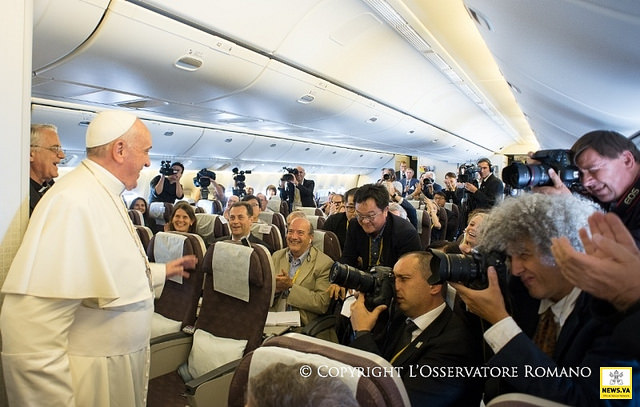11th September 2014
The Church as a global player


The bishops in the US and health care reform. The leading role played by the Catholic Church in tackling corruption in the Philippines. Caritas Internationalis responding in a practical way to the rise in suicides amongst Indian farmers. Catholic radio and censorship in South Sudan. The response of the Eastern Church Patriarchs to ISIL. Using these examples in a recent article, the US Vatican commentator John Allen justified the launch of a new website dedicated to global Catholic coverage by noting that “the church is a player”.
He’s right. We have an embassy to the Holy See because we need to be here. While preparing to speak to Catholic journalists from around the world at Rome’s Holy Cross university, I started to run through the priority foreign policy issues on which this embassy works, and where we can add value. The list is a long one, ranging from thematic issues like human trafficking, climate change, freedom of religion and belief, the post-2015 international development agenda, women’s rights, and inter-religious dialogue, to work on the world’s geo-political hot-spots: the Middle East especially Iraq, Syria, Palestine; West and Central Africa including Nigeria and the Central African Republic; Venezuela and the Americas; Ukraine; China and Korea; the forthcoming Papal visit to Sri Lanka and the Philippines.
The Holy See is not always central to these issues. It would prefer to see UN member states organise their own political, economic, development and cultural affairs without the need for intervention from the global church network. Yet it understands that it has a role to play, and that there are many instances in which it can and should intervene. It often enjoys a high level of legitimacy, can input a non-government perspective into issues, and can draw on hundreds of years of experience, with the sort of long term vision sometimes difficult for elected governments to grasp.
That does not mean that the Holy See always gets it right (sometimes it gets it wrong, as the slow response to clerical child sex abuse showed), nor that the Catholic Church and governments will always see eye to eye. But it does mean that it is a player.